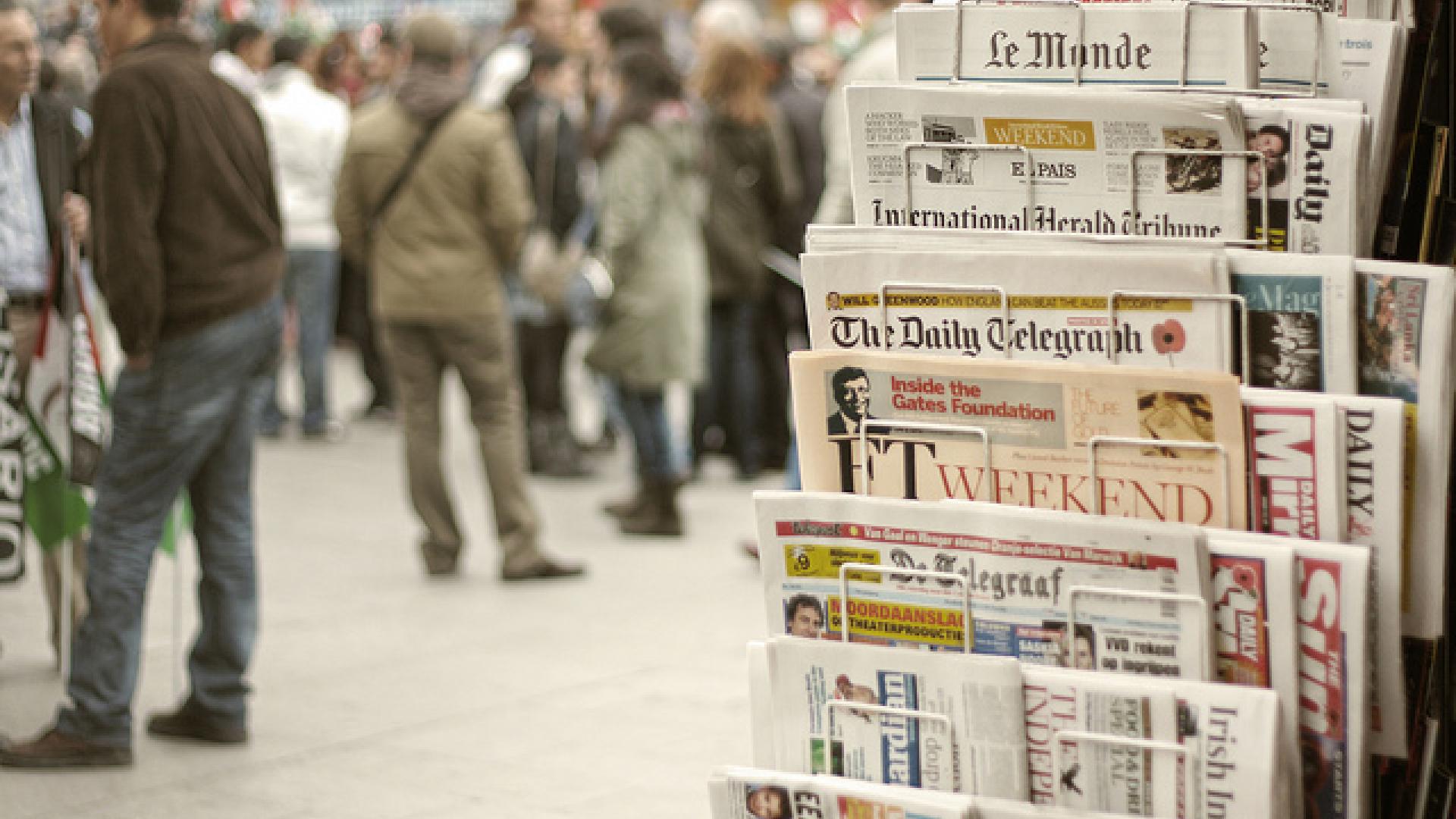The charity sector’s relationship with the media has always been something of a mixed bag. On the one hand, media coverage can provide a tremendous boost to a charity’s campaigns and services. On the other, negative attention has the potential to be very detrimental.
An overarching issue, however, is the low profile that the charity sector as a whole seems to have in the media. Our founder, Joe Saxton, has talked about this issue in recent months (and is referenced in this insightful article about charities and the media from Third Sector). His comments illustrate the view from within the charity sector; a clear disparity between the quantity and type of coverage received by charities versus their higher-profile counterparts in business and the arts.
So what do journalists think about their reporting on charities? And why does charity sector coverage never seem to go deeper than the surface? nfpSynergy has been running research with journalists and the public on this topic over the last six months, so I thought this was an ideal time to take a quick look over what we’ve found and give some thoughts on what it could mean.
What’s the public thinking?
Firstly, we asked the public which sectors they felt the media had a responsibility to cover, and what came back would probably give Joe Saxton some sense of vindication. All in all, 69% of the public said that they thought the media had a duty to cover the charity sector, about equal to the business sector (70%) and well ahead of the Arts (52%).
Considering how differently the Arts and charities are reported on, this public response is very telling when it comes to the imbalance of coverage between sectors. It’s clear that the public think charities are deserving of and should be receiving coverage, which leaves us asking why it is that the media offers such sporadic attention?
The view from journalists
With that in mind, how do journalists see their work on the charity sector? We talk to 150 of them twice a year, and in our last round of research we gathered information on how they see the relationship between the media and charities. When we asked them how much they felt the media helped or hindered charities, an overwhelming 94% said that they felt the media was a positive influence, including 70% who felt that the media helped a great deal. When asked to explain the reasoning behind their answers, the most common answer (45%) was that they raised awareness of charities. Curiously, only 11% believed that the media helped charities actually get their message across to the public. As one journalist put it:
"The media highlights campaigns and the work done by many charities. However, the complexity of the charity sector is not so well explained.”
BBC news journalist
Clearly journalists feel that the media is an effective tool through which charities can raise awareness and funds for their cause, and that is absolutely true. Yet the quote above highlights a key point that helps to explain how the views of charity sector professionals and journalists can be so different.
In my opinion, it’s a simple matter of priorities; journalists primarily need to create interesting and engaging stories for their readers. Where charities often come into that is providing a vital human element for a story. Another journalist summarised this perfectly:
“For journalists, it's easy to find an MP or other professional to cover in a story, but it is hard to reach people affected by a particular story. The gateway to those people are charities.”
Sky News journalist
So while journalists are doing fantastic work in raising the profile of campaigns, their core priority is to use the sources available to them to create the most engaging and interesting article possible. On the other hand, charities have an interest in building understanding among the general public of how their sector works; the challenges it faces and how political, economic and social developments impact charity work. As the BBC journalist quoted above stated, the charity sector is a complex beast.
With that said, attempting to reconcile the needs of the journalist writing a story with the charity sector’s desire to develop public understanding is very difficult. It’s a rare story that offers the scope for both effective human interest and complex sector analysis.
It’s this that has led to our current situation. Charities offer the best way for journalists to talk to the people impacted by issues, and as such there is a great reciprocal relationship between the two that has the potential to create great stories and raise awareness.
The price of that arrangement, however, is that more complex, detailed and important stories about the inner workings of the charity sector are often overlooked.
Don't suppose you know who
Don't suppose you know who those two BBC and Sky journo's are by any chance?
Interesting about the
Interesting about the difference between arts and charity - this sums up perfectly the dilemma for organisations which are both arts based and charities.

